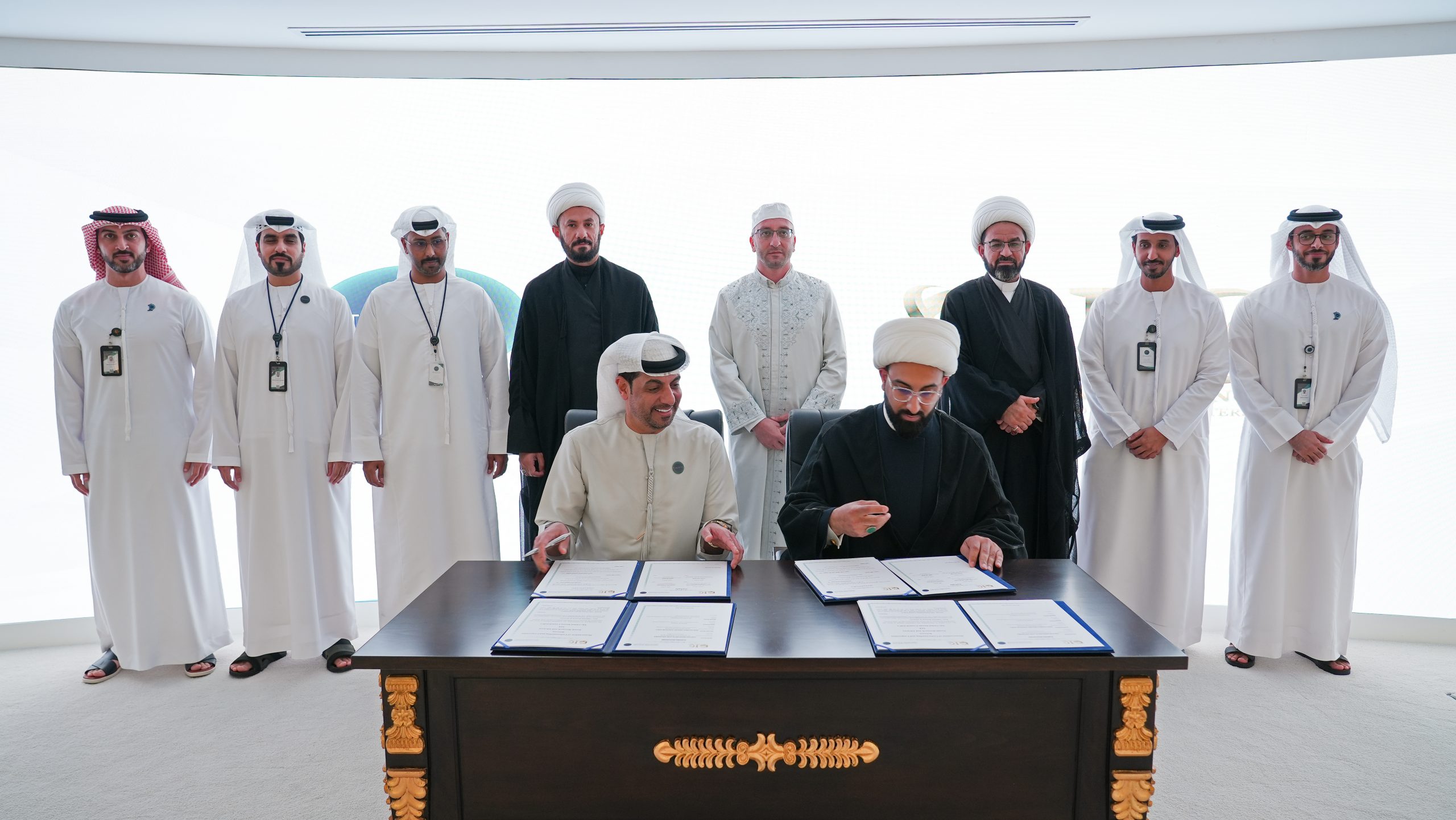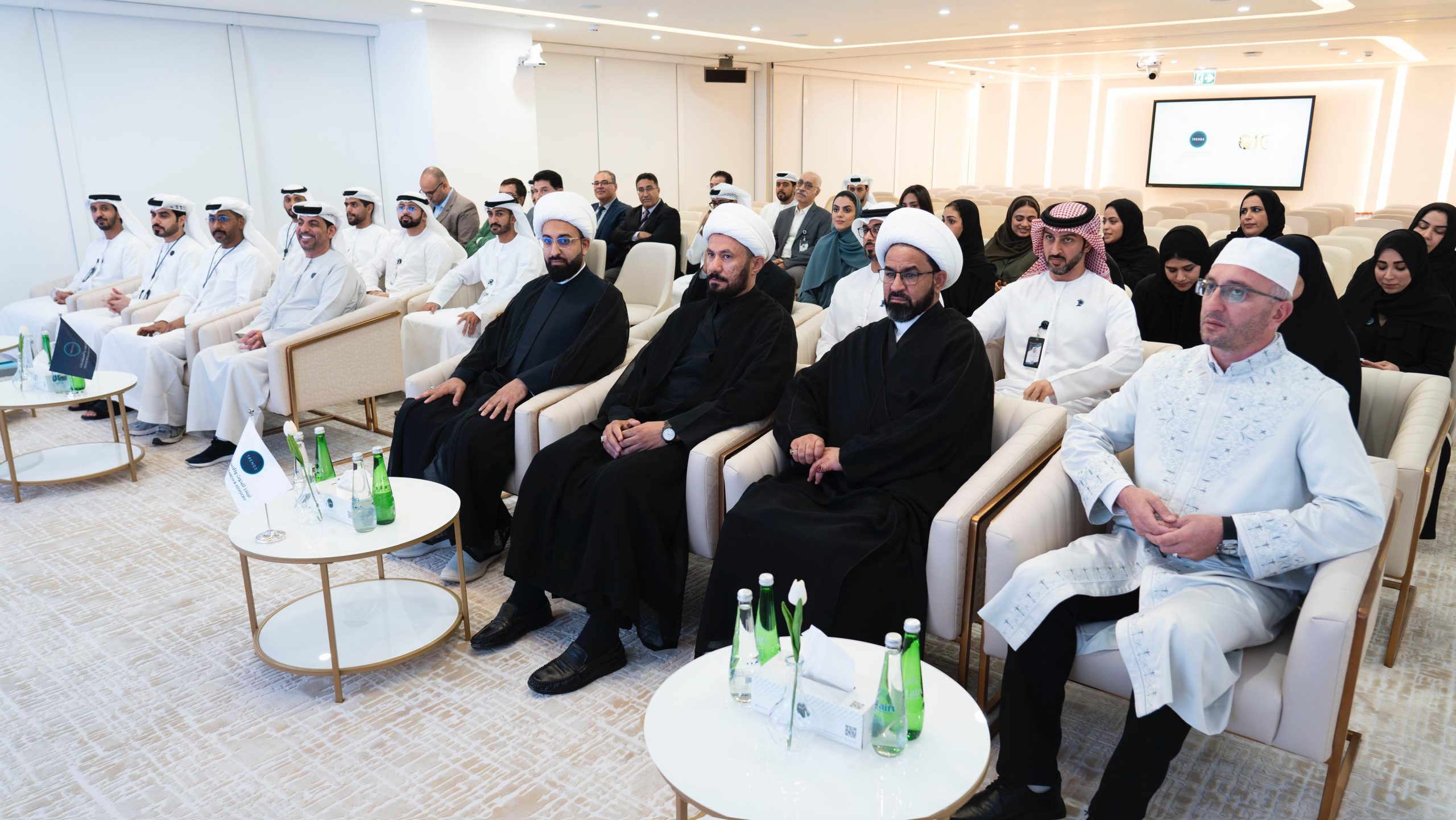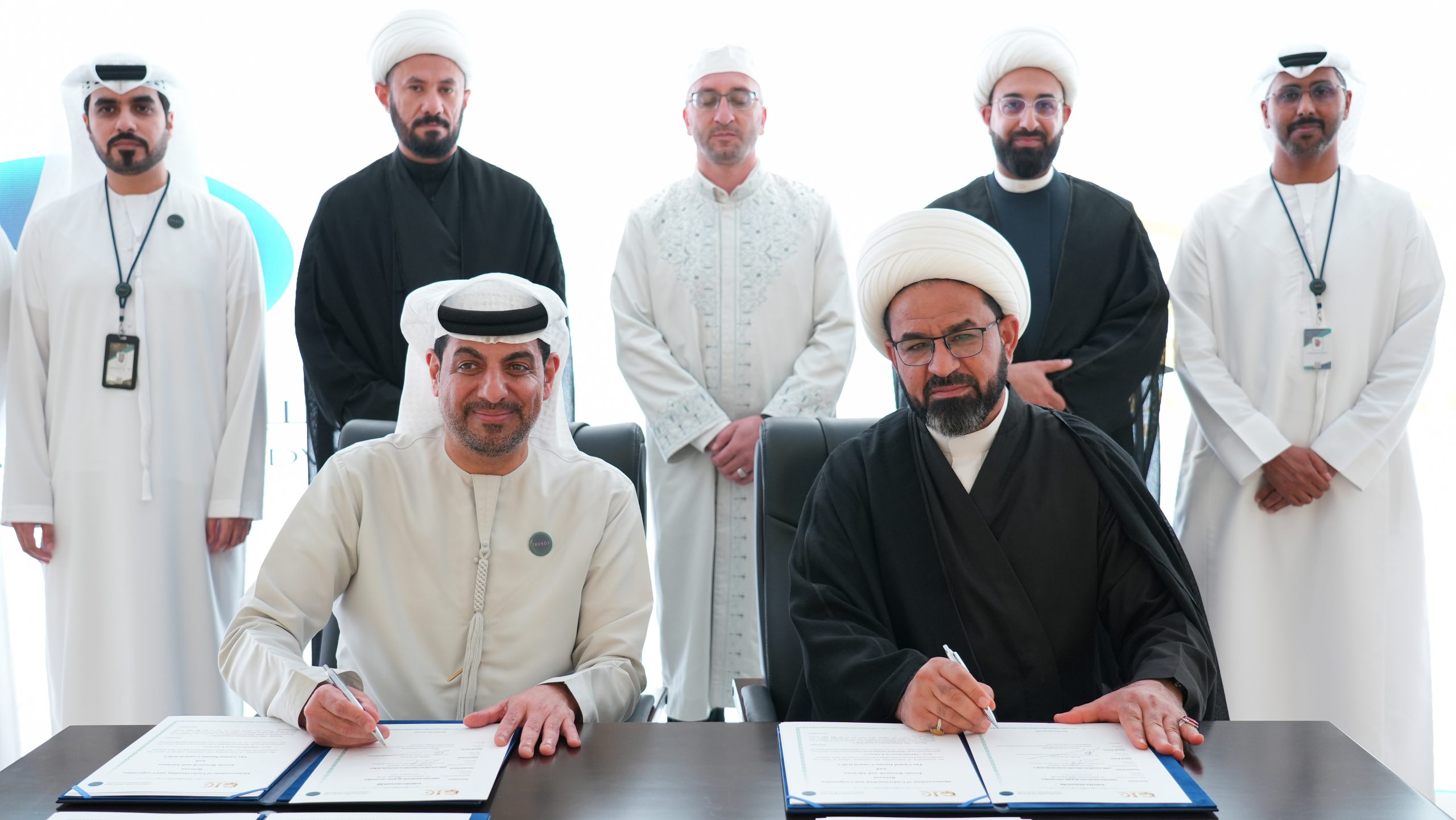TRENDS Research and Advisory and the Global Imams Council (GIC) have signed a cooperation agreement to advance scholarly research and exchange knowledge in areas of mutual interest. This agreement underscores TRENDS’ commitment to collaboration among global think tanks to promote tolerance and coexistence and counter extremism and hate speech.
The agreement was signed at TRENDS’ headquarters in Abu Dhabi by Dr. Mohammed Abdullah Al-Ali, CEO of TRENDS, Imam Mohammad Tawhidi, Vice President of GIC, Sheikh Ali Al-Kaabi, Director of GIC Najaf and Senior Research Fellow, and Imam Tamaz Mgeladze, Director of GIC Georgia and Chair of the Georgian Muslim Union, in the presence of several officials and researchers from both sides.
 The agreement provides for conducting original evidence-based research to serve the community and support policymakers.
It emphasizes strengthening relations between the two sides, expanding their knowledge base, and leveraging their expertise in policy and research areas. Additionally, it provides a formal and legal framework for communication, coordination, and cooperation, enabling both sides to achieve their common research goals.
Dr. Mohammed Abdullah Al-Ali, CEO of TRENDS, expressed his pleasure to sign this agreement, praising GIC’s role in promoting the values of tolerance and human fraternity. He emphasized that think tanks and research institutions are responsible for finding effective solutions to promote these values and combat extremism.
The agreement provides for conducting original evidence-based research to serve the community and support policymakers.
It emphasizes strengthening relations between the two sides, expanding their knowledge base, and leveraging their expertise in policy and research areas. Additionally, it provides a formal and legal framework for communication, coordination, and cooperation, enabling both sides to achieve their common research goals.
Dr. Mohammed Abdullah Al-Ali, CEO of TRENDS, expressed his pleasure to sign this agreement, praising GIC’s role in promoting the values of tolerance and human fraternity. He emphasized that think tanks and research institutions are responsible for finding effective solutions to promote these values and combat extremism.
 Dr. Al-Ali pointed out that cooperation between the two sides would yield positive and tangible results through joint research and studies that serve their visions and objectives.
He affirmed that research plays a crucial role in developing insights, solutions, and effective strategies to face challenges.
Imam Mohammad Tawhidi commended the agreement and praised TRENDS’ research efforts, which have made it a global platform and authority on many issues.
He explained that the agreement with TRENDS aims to launch joint research projects, exchange expertise, cooperate in training programs and courses, and expand the communication network. He stressed that scholarly research provides the necessary data and evidence for addressing challenges and making progress.
Dr. Al-Ali pointed out that cooperation between the two sides would yield positive and tangible results through joint research and studies that serve their visions and objectives.
He affirmed that research plays a crucial role in developing insights, solutions, and effective strategies to face challenges.
Imam Mohammad Tawhidi commended the agreement and praised TRENDS’ research efforts, which have made it a global platform and authority on many issues.
He explained that the agreement with TRENDS aims to launch joint research projects, exchange expertise, cooperate in training programs and courses, and expand the communication network. He stressed that scholarly research provides the necessary data and evidence for addressing challenges and making progress.

 The agreement provides for conducting original evidence-based research to serve the community and support policymakers.
It emphasizes strengthening relations between the two sides, expanding their knowledge base, and leveraging their expertise in policy and research areas. Additionally, it provides a formal and legal framework for communication, coordination, and cooperation, enabling both sides to achieve their common research goals.
Dr. Mohammed Abdullah Al-Ali, CEO of TRENDS, expressed his pleasure to sign this agreement, praising GIC’s role in promoting the values of tolerance and human fraternity. He emphasized that think tanks and research institutions are responsible for finding effective solutions to promote these values and combat extremism.
The agreement provides for conducting original evidence-based research to serve the community and support policymakers.
It emphasizes strengthening relations between the two sides, expanding their knowledge base, and leveraging their expertise in policy and research areas. Additionally, it provides a formal and legal framework for communication, coordination, and cooperation, enabling both sides to achieve their common research goals.
Dr. Mohammed Abdullah Al-Ali, CEO of TRENDS, expressed his pleasure to sign this agreement, praising GIC’s role in promoting the values of tolerance and human fraternity. He emphasized that think tanks and research institutions are responsible for finding effective solutions to promote these values and combat extremism.
 Dr. Al-Ali pointed out that cooperation between the two sides would yield positive and tangible results through joint research and studies that serve their visions and objectives.
He affirmed that research plays a crucial role in developing insights, solutions, and effective strategies to face challenges.
Imam Mohammad Tawhidi commended the agreement and praised TRENDS’ research efforts, which have made it a global platform and authority on many issues.
He explained that the agreement with TRENDS aims to launch joint research projects, exchange expertise, cooperate in training programs and courses, and expand the communication network. He stressed that scholarly research provides the necessary data and evidence for addressing challenges and making progress.
Dr. Al-Ali pointed out that cooperation between the two sides would yield positive and tangible results through joint research and studies that serve their visions and objectives.
He affirmed that research plays a crucial role in developing insights, solutions, and effective strategies to face challenges.
Imam Mohammad Tawhidi commended the agreement and praised TRENDS’ research efforts, which have made it a global platform and authority on many issues.
He explained that the agreement with TRENDS aims to launch joint research projects, exchange expertise, cooperate in training programs and courses, and expand the communication network. He stressed that scholarly research provides the necessary data and evidence for addressing challenges and making progress.




